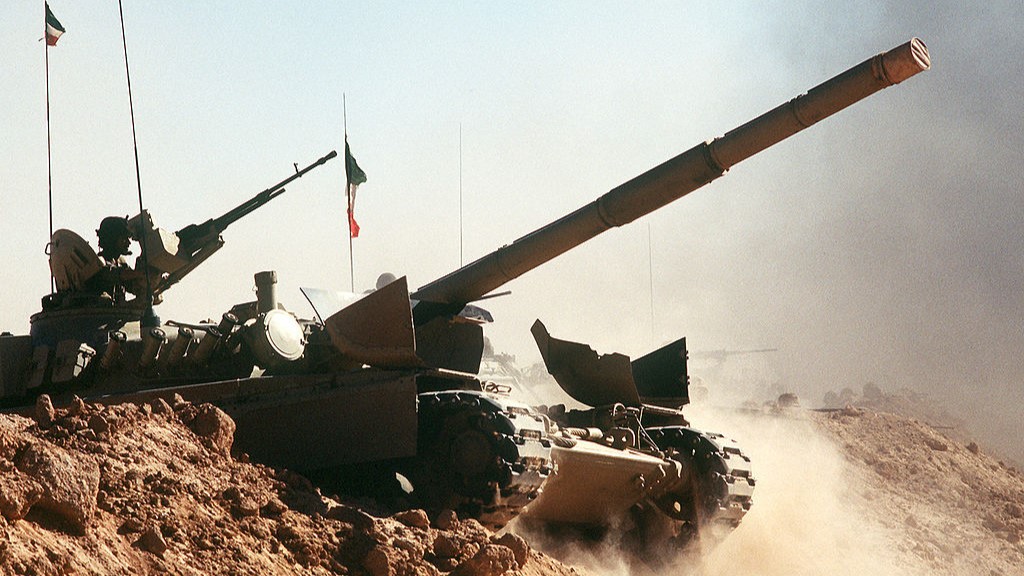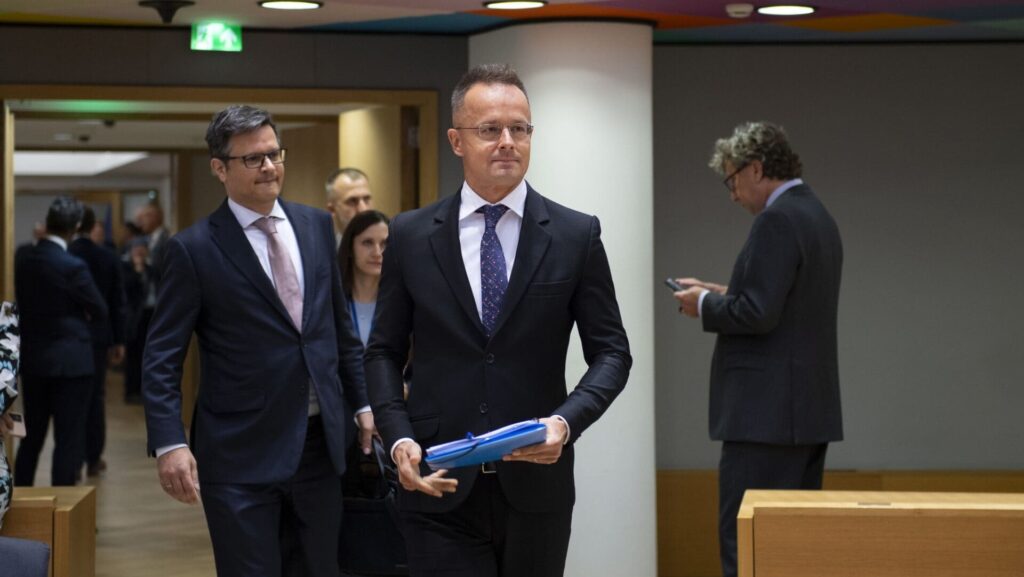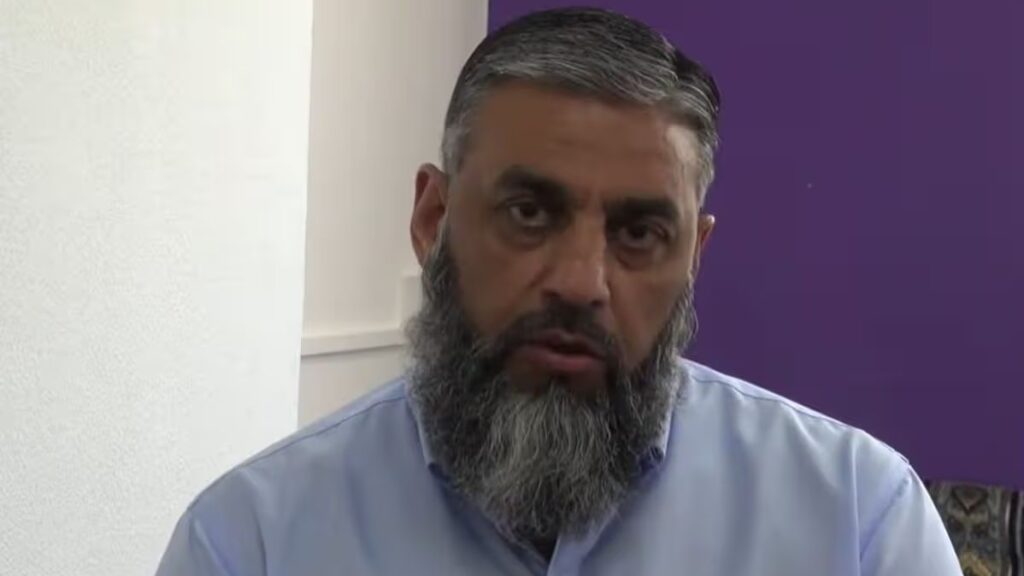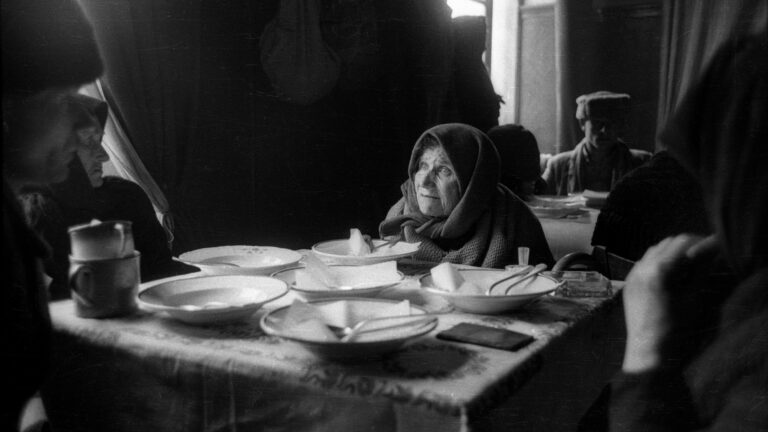Camions stranded in the desert. Journalists sitting in offices recalling fond memories and adventures of a faraway land, now consumed by the waves of barbarism. Doubts about the good faith of the great powers. When Saddam Hussein’s Iraq invaded Kuwait on 2 August 1990, the countries of the world watched in shock, among them a small Central European republic as well.
The invasion of Kuwait is a moment ingrained in Western memories: a moment that inaugurated the time of constant American military involvement in the Middle East, which, in a way, continues into the present. The unipolar moment, where the US was geopolitically dominant and could start to enforce a ‘rules-based international order’ as it understood, started in the Gulf. It was a moment in which Hungary, in a way, took part. The media analysed the causes, potential developments, and implications of recent events that unfolded globally. They did so in a world where, for them, everything seemed to be on the move, with the first post-Soviet democratic elections just behind their backs and the former overlord, the Soviet Union, slowly crumbling. Everybody was contemplating what the new era might look like, at home and abroad.
Of course, it was not always about the big narratives in the summer of 1990. Hungarians who read print media were preoccupied with plenty of things in their small world. They were reading about right-wing MPs’ controversial views on the Second World War, the inauguration of Árpád Göncz, or whether to buy the new thing, a ‘computer’ for office use.
Commentaries and insights on the war in Kuwait were the sharpest when they discussed topics that directly impacted Hungary. In fact, there were quite a few. Hungary had a fruitful relationship with the Gulf countries, Kuwait included. The small socialist state craved hard currency, which needed presence on Western markets, and access to those, while not at all impossible, was more complicated than tapping into the vast financial reserves of Arab oil economies. Hungary exported relatively high-quality and affordable industrial goods, along with the expertise to operate them in Kuwait, during the 1970s and 1980s. This meant good ties in other fields as well. There were bilateral grant initiatives through which Kuwaitis received education in Hungary, and Hungarian professionals were welcomed in Kuwait to deliver various short-term training programmes. Not surprisingly, a former Hungarian alumnus of one such exchange, Péter Szántó, was one of the first to offer his comments in 168 Hours, a left-wing weekly.
Writing about his time as a journalist grantee in 1986, he remembered space-age Kuwait—awash with cash and welfare schemes for its citizens; a shopkeeper who specialized in serving the Hungarian colony, cursed in Hungarian, and blamed the Soviet Union and other Socialist countries for arming the Iraqi dictator to the teeth. He viewed the end of the Cold War through this lens—as just another chapter in global chaos, where poor decisions only enable barbaric personalities to launch attacks. ‘We are rushing toward entropy,’ he mused about the fate of the world, observing Central Europe in turmoil while the Middle East burned.
‘We are rushing toward entropy…’
The foreign affairs reporter Péter Vajda saw this moment as a decisive one for the trajectory of the world system as well. In his article in the Beszélő weekly, the journalist evaluated US steps regarding the situation as ‘alibis’, warning that if the US can’t handle the situation, it will be a ‘superpower of yesterday’, becoming a loser in the international system after defeating its antagonist, the Soviet Union.
Others saw the whole Gulf affair in even darker terms, seeing in it the immorality of superpowers. The playwright and politician István Csurka, remembering the invasion a couple of months later, remarked about the perceived cynicism of Western powers, emphasizing the undeniable fact that they also played a part in arming up Saddam Hussein’s Iraq. ‘They now would gladly bomb the cities into which they shipped their very own weapons and military supplies in earlier times,’ he called out wryly. Interestingly, Csurka’s comments did not come from a background of pro-Soviet anti-Americanism, but a unique brand of developing ‘national radical’ criticism of globalism. Csurka was already a bogeyman of the Western press, which was appalled to report on his radical comments about Hungarian public life. The anxieties of the new world were already showing in Hungary, and global events brought these concerns to the forefront.
‘Poles held together the water system, and a Hungarian managed to keep the sewage system going’
There were many more mundane things for Hungarians to be anxious about regarding the Iraqi invasion. Not only were the memories of visits to Kuwait alive, but there was still an active and diverse Hungarian expatriate community in the country, which worked on economic projects initiated during Socialism. They reported proudly on their achievements during the invasion, too: ‘Poles held together the water system, and a Hungarian managed to keep the sewage system going,’ said a Hungarian engineer.
Despite their heroic crisis work, the expat community was left stranded and helpless, while Iraqi tanks thronged the streets. A couple of them were briefly detained by Iraqi troops, and no less than five remained in custody for two weeks, while Saddam Hussein, the unscrupulous Iraqi leader, played with the idea of holding Europeans and other Westerners hostage. The others rushed to the Hungarian Embassy and the Commercial Office to seek refuge there. They started to prepare quickly for the trip, organizing a total of 52 cars with the help of vehicle engineers who worked to keep Hungarian buses sold to Kuwait running. Later, they arranged for some buses to transport them to Baghdad.
The caravan of 34 cars, buses, and a wayward Hungarian camion whose driver became stranded in Kuwait reached the Iraqi capital under the constant threat of war on 19 August. The group reached Ferihegy airport (now Liszt Ferenc) on 21 August, where Hungarian Foreign Minister Géza Jeszenszky awaited them, closing off a 17-day ordeal in a Middle Eastern crisis. One issue was never resolved: the truck, which was supposed to carry their belongings, never arrived in Iraq.
These Hungarians were among the luckier individuals in Europe. No less than 800 Westerners and Japanese were trucked to strategic locations in Kuwait to serve as human shields. At the same time, thousands of other expats were not allowed to leave the country until almost the end of 1990, when all were released after living on the edge for months. As a small and still non-Bloc country, Hungarians were allowed to slip away, apparently.
An interesting question is how the country would have acted regarding the Iraqi crisis if its people had been kept hostage with other Westerners until December 1990. In that month, the government was already negotiating the deployment of Hungarian medical staff alongside the coalition armies in Iraq with relative carelessness. If the expat community had remained there longer, the calculus may have been different. But that is a story of the later months.
After the Cold War, as the unipolar moment began and a series of crises unfolded in the Middle East, Hungary was actively involved. Journalists and thinkers voiced concerns about the future, while expatriates in Hungary’s extensive foreign trade network scrambled to ensure their safety. It was a unique moment—a country still tied to Soviet Bloc-era networks and grappling with the anxieties of transition. This special context highlights the enduring worries in Hungarian society and reflects on our collective memories of the 20th century. These experiences were not confined to Hungary itself; they also shaped the lives of Hungarian expatriate communities in distant Gulf republics, suddenly thrust into the spotlight on that 2 August, 35 years ago.
Related articles:







